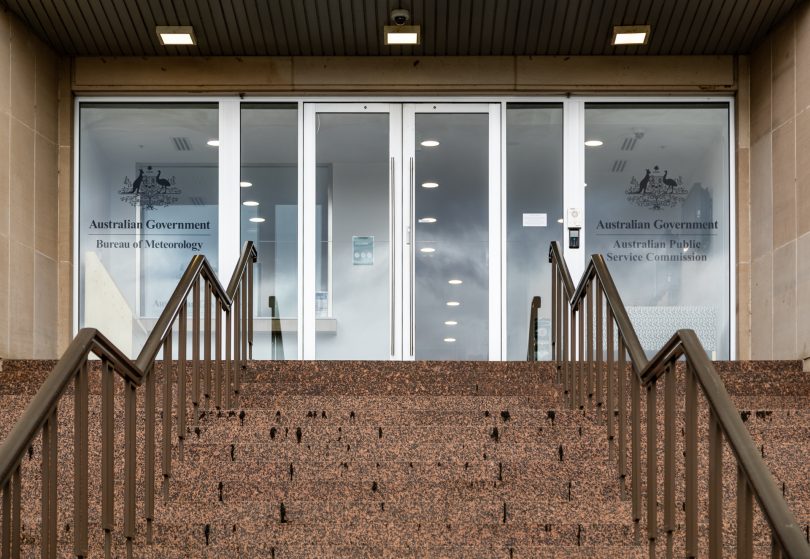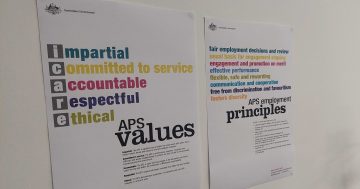
The Australian Public Service Commission has some self-reflecting to do, according to an independent review. Photo: Michelle Kroll.
The Australian Public Service Commission has to lift its game and show more leadership if it wants the sector to have more respect for it, an independent review of the agency says.
It is the first such review in seven years, and while it contains plenty of praise and examples of jobs well done, there are clear areas for improvement spelt out in the recently released report.
Led by University of Canberra adjunct professor and former high-ranking public servant Carmel McGregor, and current Defence Department deputy secretary Justine Greig, the review didn’t hold back in its advice to the APSC.
Their review takes a high-level view of the Commission’s strategic operations.
According to the report’s overview, the review provides an important indicator of the APSC’s current capability and what actions it will need to take over time.
The report reflects on the APSC’s position as a central agency and suggests improving key areas of internal capability while continuing to focus on delivering for the APS.
“Areas for opportunity identified in the review include the APSC being clear around its purpose and priorities, developing its own workforce planning, looking to provide proactive assurance of workforce policies across the APS, and actively supporting the service in implementing reform,” it states.
“Further opportunities that the APSC is looking to undertake are increasing transparency and use of data, and strengthening integrity across the Australian Government public sector.”
The review was conducted in consultation with government agencies, which reported they wanted more from the entity responsible for the stewardship of the APS.
“Stakeholders want the Commission to consistently assert its leadership and exercise more authority and influence,” the report states.
“They noted the Commission’s driving role in the early days of the pandemic and the importance of returning to this forward-looking approach.
“Many stakeholders want to see the Commission use the impressive data and longitudinal evidence it holds to identify strengths and opportunities for improvement, and to push improvements by holding agencies to account for their performance.
“Stakeholders would welcome this more assertive approach. They also want the Commission to lead integrity improvement, a key plank of government reform.”
The review found strong support for an “enhanced and more authoritative role” for the Commission, with words such as “heft”, “ability” and “drive” being used to urge its setting of service-wide guidance and policy.
“It is time to embrace this opportunity, as there has not always been such strong support for the Commission and its Commissioner,” the report states.
“To deliver on this more authoritative role, the Commission needs to deal with internal capability issues raised in this review.
“Workforce issues require urgent attention to ensure the Commission recruits and retains the right staff with the right skills to deliver on its mandate.
“Careful forward workforce planning is needed to solve current issues of rapid turnover and consequent loss of corporate knowledge and expertise, and imbalances in staffing profiles and skills mix.”
Recently retired commissioner Peter Woolcott was praised in the report by departmental secretaries for delivering “advice on complex and sensitive workforce matters” and his “highly valued and reassuring” support and responsiveness.
His good relationship with government ministers was also commended.
Newly appointed APS Commissioner Gordon de Brouwer responded to the report saying it provided a foundation for the Commission to build on its strengths.
Areas of focus the review says the APSC should focus on include:
- Providing clear, authoritative guidance to agencies, with a stronger position stance. This was identified by many agency heads. Advice cannot be vague and optional. The Commission needs to be firmer, and drive implementation of advice as well as evaluating where it has been actioned.
- Aligning the Commission’s priorities with legislative responsibilities, the government’s agenda and the future-focused needs of the APS. The Commission needs to realign resources with priorities. The projected decline in funding means the Commission will not be able to deliver everything it currently does.
- Improving its understanding of the needs of agencies and building whole-of-service capability where the APS needs it.
- Undertaking more focused and deliberate engagement.
- Ensuring staff have the right tools, systems and processes to adapt to constantly changing priorities and be flexible in delivering work. Also critical is greater expertise in preparing advice for ministers. Stakeholders also want the Commission to work more quickly to develop actions from reports and identify future challenges in the public service.
- Leading as a model employer for the APS.
- Leading on integrity for the APS.
- Enhancing efforts in diversity and inclusion.
- Strengthening HR expertise so the Commission is the trusted adviser for departments on all workforce matters.
Original Article published by Chris Johnson on Riotact.







